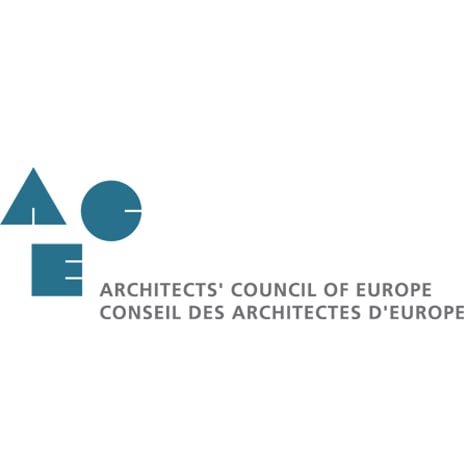Dezeen Wire: the Architects' Council of Europe has condemned the proposed exclusion of 90% of architecture firms from the public procurement market.
In their latest report, the council has urged the EU to amend drafted legislation to help small and medium-sized practices bid for and obtain work in the public sector.
Read the full press release below:
ACE deplores the exclusion of 90% of architectural firms from the public procurement market, and calls on the EU to amend its legislative proposal in order to achieve improved market access for SMEs
Amendments submitted by the Architects’ Council of Europe (ACE) in response to the proposed modernisation of the Public Procurement Directive stress that the proposals will not improve access to public procurement for architects. An ACE study of professional practice reveals that the application of turnover requirements would exclude 90% of architectural firms from public procurement contracts, thereby failing to improve the SME access that the Directive sets out to achieve.
ACE recently submitted draft amendments regarding the draft Public Procurement Directive, to Rapporteur, Marc Tarabella. While welcoming the Commission’s decision to modernise the Directive, ensure efficient use of public funds, improve the business environment and generally increase SME access to the market, ACE reiterated the fact that current access to public contracts for architects is virtually non-existent. Misapplication of earlier provisions has led to an almost total loss of potential benefits – a waste of public funds and a serious handicap to EU competitiveness in the global market.
The ACE submission seeks to:
- facilitate participation of architectural firms (mostly SMEs) in public procurement;
- promote selection procedures and award criteria based on quality;
- ensure that the specific nature of intellectual services is taken into account.
SMEs: ACE advocates simplifying administrative demands and opposes setting turnover requirements for architectural service providers at three times the estimated contract value. ACE believes that it is not possible to find a limit that is appropriate to all procurement procedures and professional services, and suggests deleting this restriction and putting more emphasis on qualitative selection criteria, based on principles of sustainable development. At worst, any turnover requirements should not exceed the contract value.
Choice of procedures: ACE suggests the inclusion of design contests followed by the negotiated procedure as a standard approach to the procurement of architectural services, given the unsuitability of electronic auctions for intellectual services. ACE calls for more disaggregation and opposes centralized procurement and framework agreements as they exclude SMEs/young professionals from the market.
Contract awarding criteria: ACE welcomes the substitution of “lowest price” with “lowest cost” (including life-cycle assessment) but regrets that procuring authorities remain free to award either on price or cost. ACE calls for awards for intellectual services to be based only on “economically most advantageous tender” and to prohibit lowest price. Price is the worst criterion as it favours the candidate who devotes least time to a solution, which then impacts on the quality of the project.
ACE Secretary General Ian Pritchard said: “Unlike some other goods or services, architectural services are intellectual services which cannot be precisely defined at the outset. ACE believes that for the revised the Public Procurement Directive to achieve its ambition for growth and employment, it must take account of the specific nature of architectural services”.
If adopted on 10 October 2012, the Directive will have to be implemented by Member States by 30 June 2014 latest. To download the ACE submission to Marc Tarabella, the European Parliament Rapporteur, go to: http://www.ace-cae.eu/public/contents/getdocument/content_id/1393

